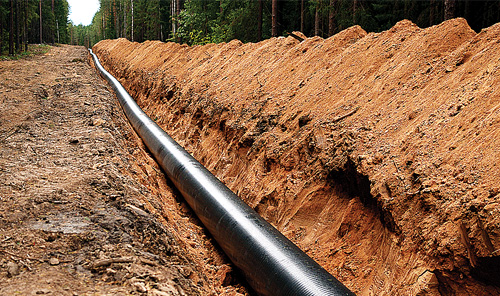NEPA Rule Changes on the Horizon
Proposed changes to the environmental review have been welcomed by NAM and others.
Q1 2020

The move would also reduce the amount of control communities have over some projects built in their locales. Additionally, the changes would also redefine what constitutes a “major federal action,” with the goal of exempting privately financed projects that have minimal government funding or involvement. According to industry experts, that could make it much easier to build some pipelines, which have become controversial due to potential environmental effects.
Notre Dame Law School Professor Bruce Huber told The Washington Post that because the regulations would not change the underlying law, agencies are still required to report the environmental impacts of actions they take that significantly affect “the quality of the human environment.”
Other aspects of the proposal would set deadlines and page limits for environmental reviews so that, in most cases, agencies would need to finish their review processes within two years. Under existing rules, environmental impact statements for major projects can take three times that long to complete. If the changes are made, “it will be up to the federal courts to decide whether those changes are faithful to the law,” Huber says.
Infrastructure Improvements
Leaders of the National Association of Manufacturers, American Road and Transportation Builders Association (ARTBA) and North America’s Building Trades Union were among those who expressed support for the proposed changes.
Leaders of NAM and ARTBA have expressed support for the proposed changes to the National Environmental Policy Act (NEPA). “There is a lot of delay inherent in the (environmental review) process now,” Nick Goldstein, ARTBA’s vice president of Regulatory and Legal Issues, told Area Development. But he says the proposed changes will enable officials to “get the process completed in a much quicker time frame and still provide very good results for environmental standards. We believe the NEPA modernization is focused on improvements to the process itself; the (environmental) standard will remain the same.
“We do expect litigation over this,” Goldstein says. “But we support the changes because we believe they would be well within the realm of what the Council on Environmental Quality is charged to do — to make sure these regulations are working in an efficient and effective manner.”
In 2017, the American Society of Civil Engineers (ASCE) gave America’s infrastructure a grade of D+, calling recent investment “woefully inadequate.” It put a total price tag on an overhaul at $2 trillion, or about 0.8 percent of U.S. gross domestic product, over the next decade. In response to this need, in recent years, both parties have introduced proposals to provide more funding for infrastructure rehab, without reaching agreement on a bill.
ARTBA’s first goal is” a stable source of funding for the Highway Trust Fund through any means necessary,” Goldstein notes. “That’s our number-one mission. We know both parties are working on a reauthorization bill right now. The Senate proposal unanimously passed the Senate public works committee. As the process moves forward, we need a permanent stable source Highway Trust Fund, which has been funded through the federal gas tax.”
Looking to the future, with more fuel-efficient cars on the road, the purchasing power of the tax is expected to continue its gradual decline; also, it has not been raised in a number of years, Goldstein explains. In a statement, ARTBA also pointed out that the past four federal surface transportation reauthorization laws have included significant provisions to expedite the review and approval process for transportation improvement projects.
“While these measures have included multiple reforms intended to cut red tape while preserving environmental protections, the permitting process time horizon has not substantially improved,” Goldstein notes. “There are several reasons for this outcome, but one major cause is the lack of utilization and/or awareness of these reforms by project sponsors.”
Project Announcements
La Colombe Coffee Roasters Expands Norton Shores, Michigan, Operations
02/23/2026
GRVTY Plans Tysons, Virginia, Headquarters Operations
02/23/2026
Hudson Industries Expands Appleton City, Missouri, Operations
02/23/2026
Israel-Based Katz 1899 Plans Dayton, Ohio, Manufacturing Operations
02/23/2026
Chick-fil-A Supply Plans Winter Haven, Florida, Logistics-Distribution Operations
02/17/2026
Annandale Millwork and Allied Systems Plans Newport News, Virginia, Operations
02/17/2026
Most Read
-
Top States for Doing Business in 2024: A Continued Legacy of Excellence
Q3 2024
-
Data Centers in 2025: When Power Became the Gatekeeper
Q4 2025
-
Speed Built In—The Real Differentiator for 2026 Site Selection Projects
Q1 2026
-
Preparing for the Next USMCA Shake-Up
Q4 2025
-
The New Industrial Revolution in Biotech
Q4 2025
-
Strategic Industries at the Crossroads: Defense, Aerospace, and Maritime Enter 2026
Q1 2026
-
The Skilled Trades Are Ready for a Digital Future
Q4 2025


